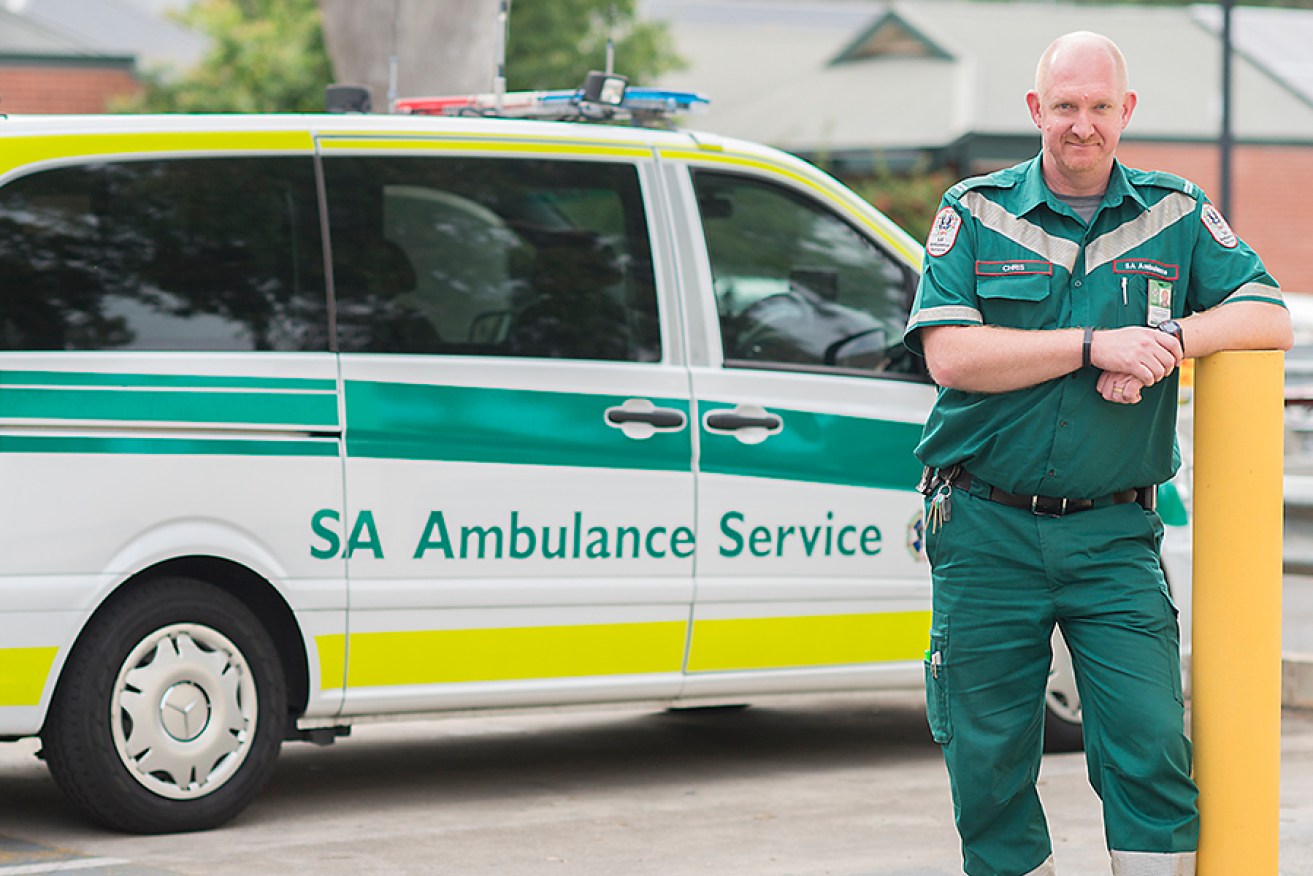Protecting ambos from daily trauma


Chris Howie has been a volunteer with the Peer Support Program for over a year. Photo: Nat Rogers/InDaily.
When paramedics returned from the horrific scene of an eight-year-old’s death at the Royal Adelaide show last month, a “psychological first aid” team had already assembled at HQ.
“Our chief psychologist came out to our headquarters and we brought all the crew in here,” recalls SA Ambulance acting operations manager Chris Howie.
“We brought in the call takers from our emergency operations centre and the coordinator who was dispatching the crews.
“And then we provided a psychological debrief for them about what had transpired, what their involvement was, how they were feeling about it, and worked with them to provide some strategies for managing any changing emotions about the case over the next few days.
“No staff have actually been absent from work since the case, and all are reporting to be quite well and back doing what they do.”
SA Ambulance’s Peer Support Program has been running for more than two decades, and is considered to be one of the most effective in Australia.
It provides paramedic volunteers with specific training so they can be dispatched to help colleagues cope with the daily traumas of the job.
“The reality of what we do and the reality of human nature is that (psychological trauma) could happen to every paramedic on every shift of work,” says Howie.
“Vehicle accidents, suicides … there are so many things that can actually trigger that sort of reaction. It’s something that we deal with regularly.
“Because of the fact that we have the program in place to deal with these things, within generally the first 12 to 24 hours, and sometimes even sooner than that, then we can actually prevent things from escalating beyond a normal reaction to an abnormal event.
“Part of what we do is preventative.”
Last year, volunteers with the program responded to nearly 2,500 traumatic incidents.
SA Ambulance also coordinates with mental health professionals to help deal with the most serious and complex trauma cases.
“If someone is identified as being at high risk, or having repeated exposures, or they just don’t seem to be coping particularly well, we can, as peer support officers, make a referral of to those mental health professionals,” says Howie.
“We certainly don’t claim to be counselors, or psychologists or anything else like that.”
Psychological help also offered for personal issues outside of work.
“If anybody’s having any personal relationship issues at home, trouble with their children, handling addictions, or any of those other sorts of things that may impact on a person’s capacity to be able to perform their duties, the program is open for them to seek support,” says Howie.
“It’s not compulsory – we certainly don’t hold anyone down and say ‘you will talk about this and you will tell me how you feel’.”
That support also extends to paramedics’ families.
“We know the type of work our paramedics do, and sometimes they go home and say … today I’ve done this and this. That can sometimes unknowingly provide some degree of vicarious trauma to family members, so the program is also available to them.”
A secondary benefit of the program is that WorkCover claims for psychological injury are extremely low.
“For the amount of traumatic exposure that our staff receive on a daily basis, to different cases, we have a very, very low psychological claims number,” says Howie.
Representatives from ambulance services around Australia and overseas have come to South Australia to try and emulate the program in their own jurisdictions.
“We’ve had visitors from the New South Wales ambulance service who’ve come and spent some time with us,” says Howie. “We’ve had people from Wellington ambulance service in New Zealand come over (and) we are currently having conversations with the Tasmanian ambulance service about the elements of our program.”
Despite its success today, the program did not enjoy overwhelming support when it began over two decades ago.
“There was certainly a degree of resistance to it,” says Howie.
“The culture in the organisation was quite different in those days and it was a more male-dominated culture.
“Certainly, that’s not the case any more.
“It certainly seems to be a very effective program, it’s well-engrained in our service, it’s well- accepted as part of what we do.”
Howie will outline the details of the Peer Support Program tomorrow, at Safe Work Week.




